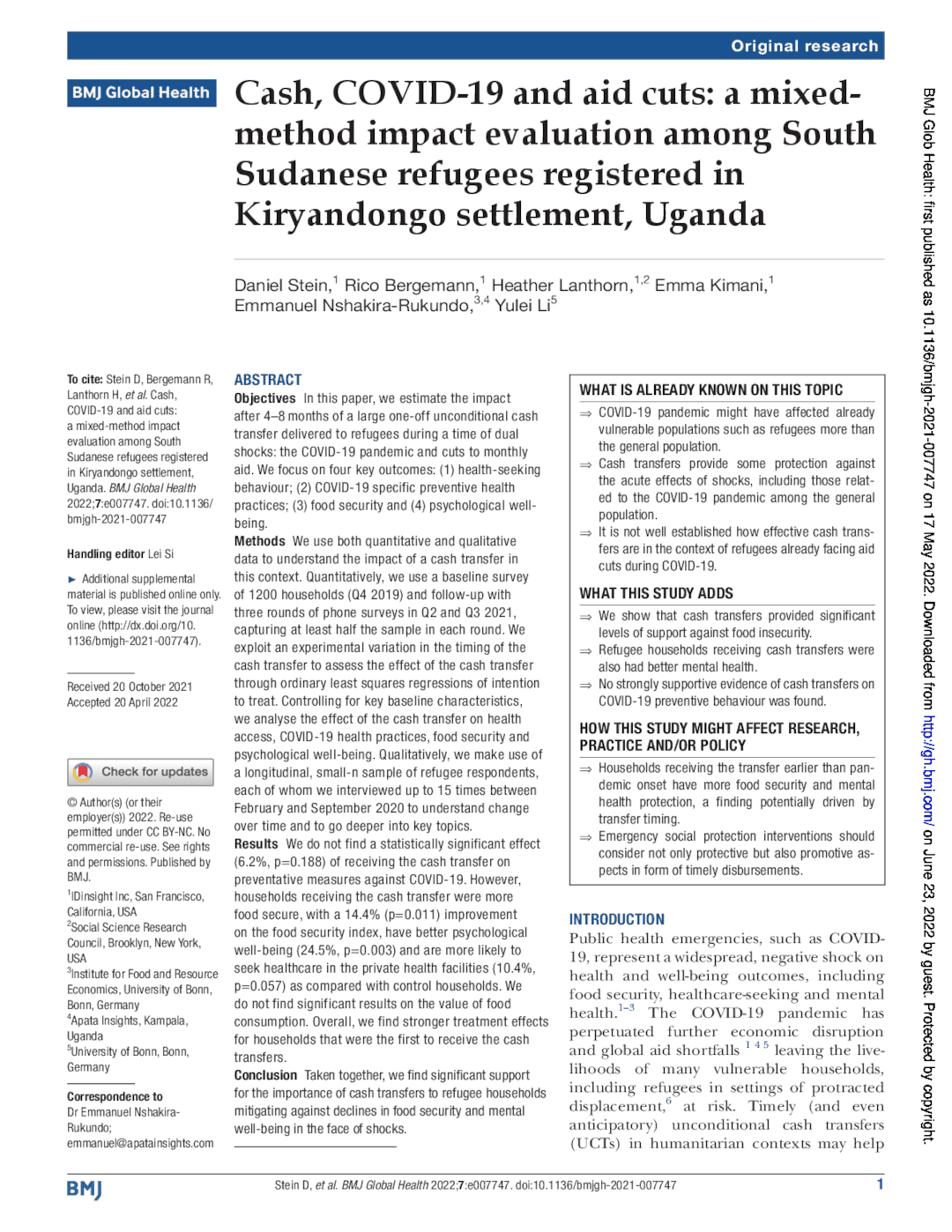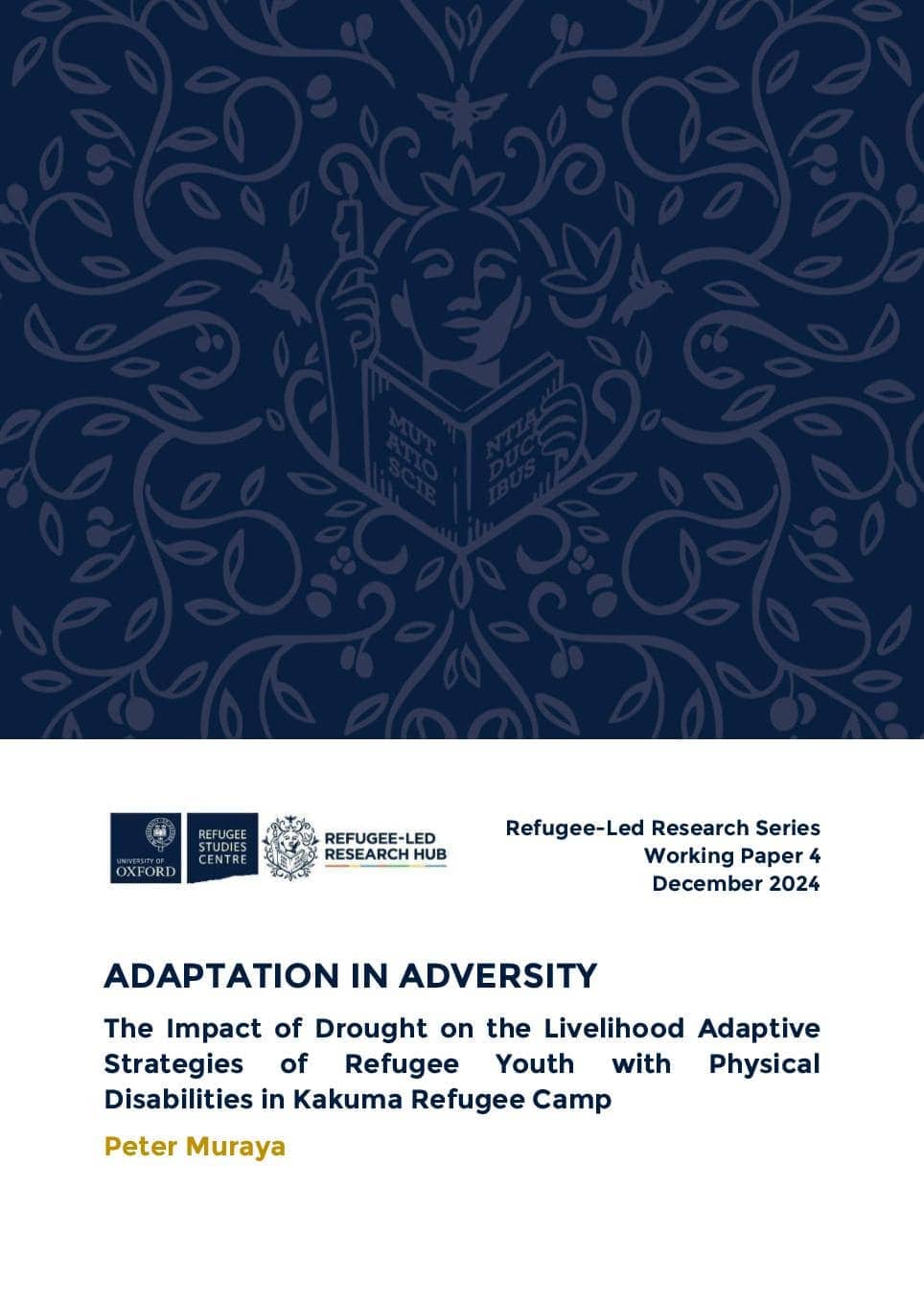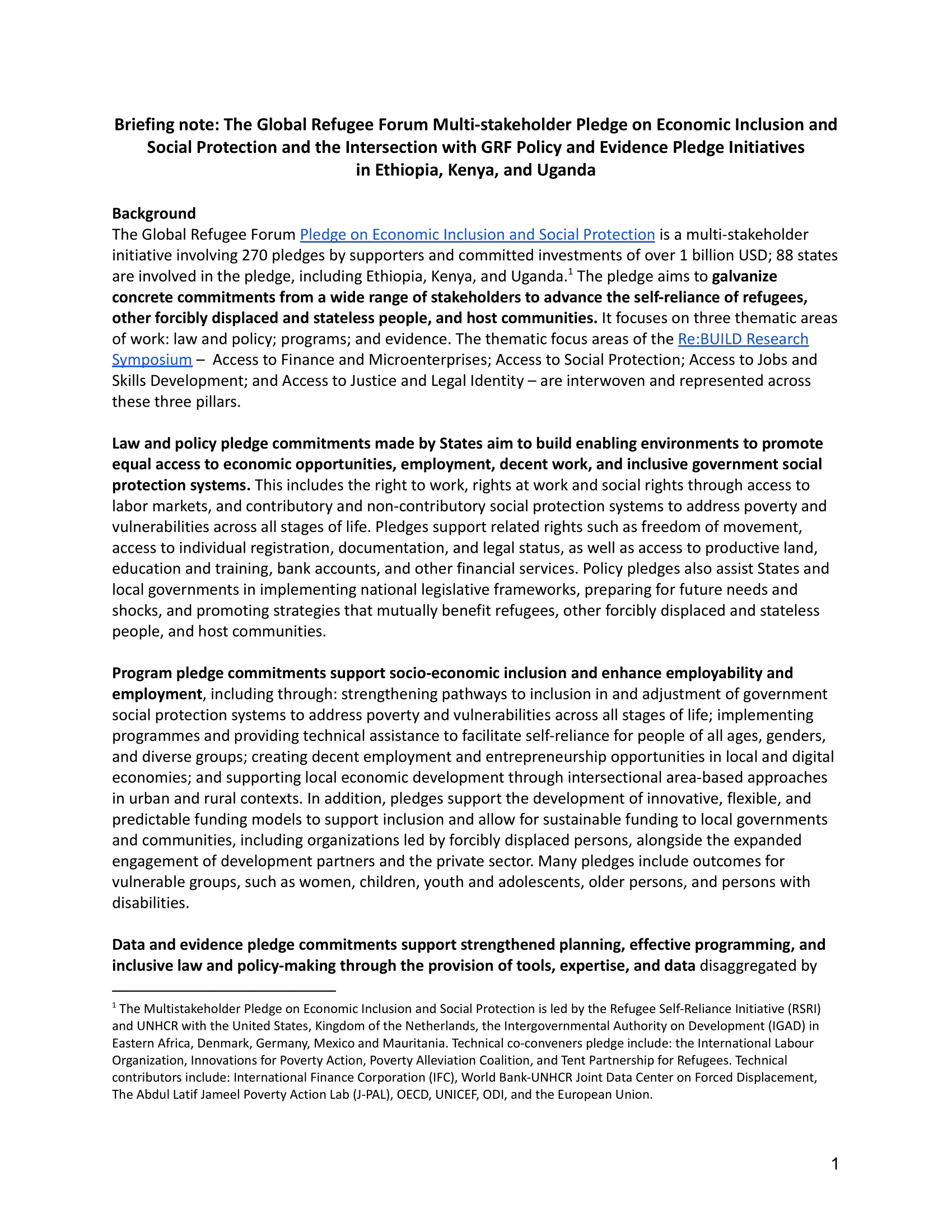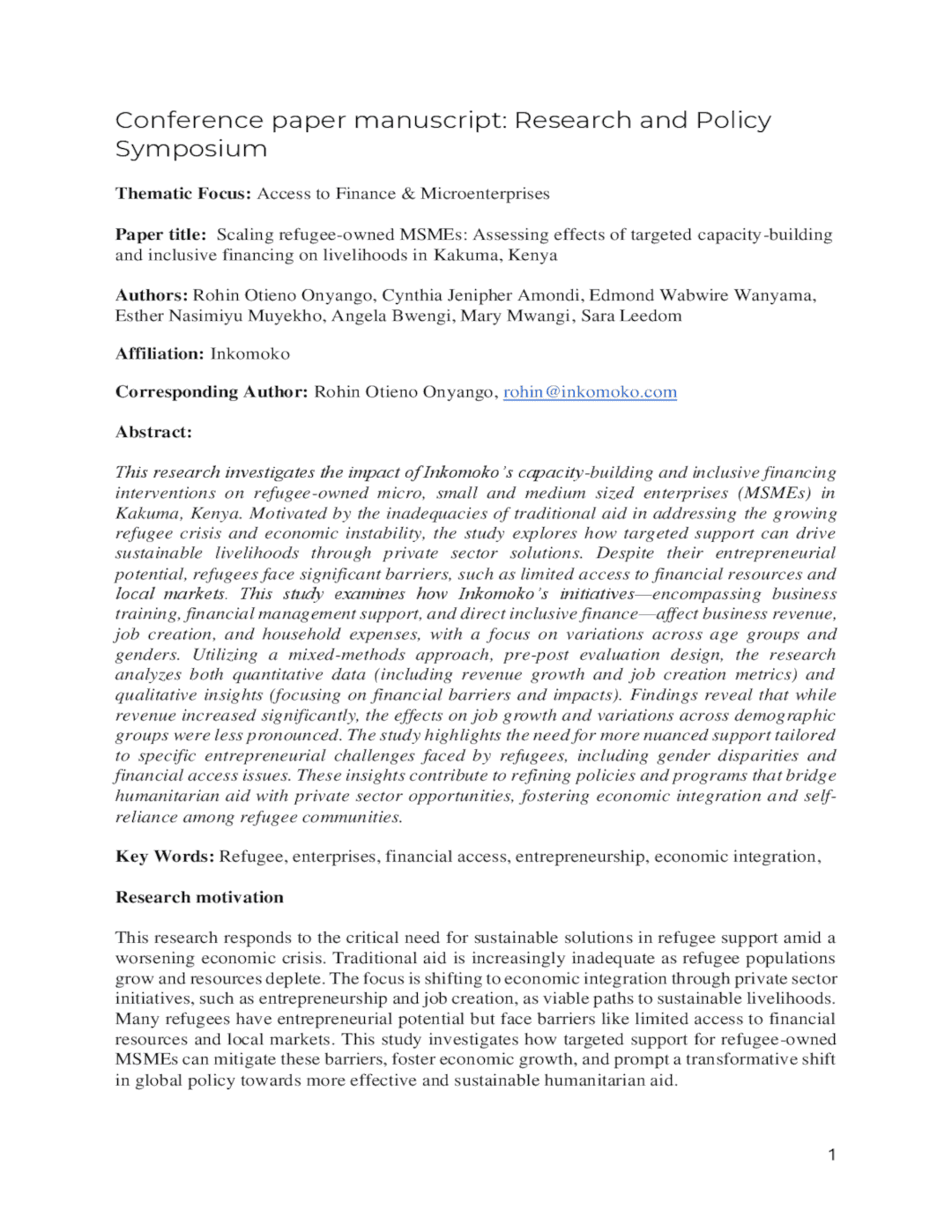Cash covid-19 and aid cuts - a mixed method impact evaluaton among South Sudanese refugees registered in Kiryandongo settlement Uganda
Cash covid-19 and aid cuts - a mixed method impact evaluaton among South Sudanese refugees registered in Kiryandongo settlement Uganda
Objectives: In this paper, we estimate the impact after 4–8 months of a large one- off unconditional cash transfer delivered to refugees during a time of dual shocks: the COVID- 19 pandemic and cuts to monthly aid. We focus on four key outcomes: (1) health- seeking behaviour; (2) COVID- 19 specific preventive health practices; (3) food security and (4) psychological wellbeing.
Methods: We use both quantitative and qualitative data to understand the impact of a cash transfer in this context. Quantitatively, we use a baseline survey of 1200 households (Q4 2019) and follow- up with three rounds of phone surveys in Q2 and Q3 2021, capturing at least half the sample in each round. We exploit an experimental variation in the timing of the cash transfer to assess the effect of the cash transfer through ordinary least squares regressions of intention to treat. Controlling for key baseline characteristics, we analyse the effect of the cash transfer on health access, COVID- 19 health practices, food security and psychological well- being. Qualitatively, we make use of a longitudinal, small- n sample of refugee respondents, each of whom we interviewed up to 15 times between February and September 2020 to understand change over time and to go deeper into key topics.
Results: We do not find a statistically significant effect (6.2%, p=0.188) of receiving the cash transfer on preventative measures against COVID- 19. However, households receiving the cash transfer were more food secure, with a 14.4% (p=0.011) improvement on the food security index, have better psychological well- being (24.5%, p=0.003) and are more likely to seek healthcare in the private health facilities (10.4%, p=0.057) as compared with control households. We do not find significant results on the value of food consumption. Overall, we find stronger treatment effects for households that were the first to receive the cash transfers.
Conclusion: Taken together, we find significant support for the importance of cash transfers to refugee households
mitigating against declines in food security and mental well- being in the face of shocks.



